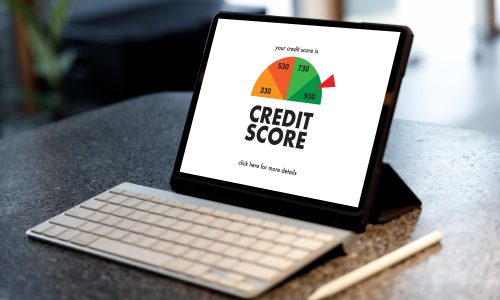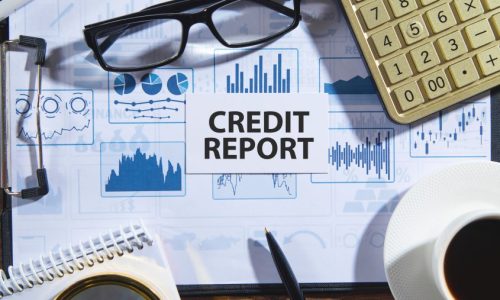Client Information on Credit Reports

You may learn a lot about your financial stability from your credit report. It may affect your ability to borrow money, the conditions under which you can borrow it, and the interest rate you must pay. Discover the simple steps to get your free credit report copy and the benefits of doing so by reading our guidelines.
Credit Report Information
So, What Exactly Is A Credit Report?
A credit report is a compilation of information about your financial past. Factors such as your payment history and bankruptcy status, as well as personal details like your address and date of birth, are all included in your credit file. This data is compiled and maintained by the three major credit reporting agencies in the United States: Equifax, Experian, and TransUnion. Credit reports often contain credit card and loan accounts with national retailers and banks, although not all creditors provide this information.
Your purchasing power may change based on the details in your credit report. It may also impair your ability to get employment, housing, and insurance. Credit bureaus make money by selling your report to organizations that use it to make decisions about you, such as extending credit, providing insurance, or providing housing. Credit reports are also used by certain companies as part of the recruiting process. The cost of getting a loan depends not only on the amount you borrow but also on your credit score.
In order to comply with the FCRA (Fair Credit Reporting Act), credit bureaus are required to provide a free copy of your credit report to you once every 12 months as well as the opportunity to dispute any inaccurate information in the files.
Why Is It Useful To Obtain A Copy Of Your Report?
Obtaining a copy of your credit report might be useful in preventing mistakes on your credit history and detecting identity theft red flags. Verify that everything is correct, including the date. This should be done at least annually. Prior to requesting credit, a loan, insurance, or a job, be careful to verify your financial file. Dispute inaccurate information on your credit report by contacting the reporting agency and the company that provided the data.
A thorough review may help detect identity fraud, as credit report errors might indicate identity theft. Your personal information can be used to commit fraud against you in many different ways, including emptying your savings account, opening new credit card accounts in your name, opening utility accounts in your name, stealing your tax refund, using your health coverage to get medical treatment, or even using another identity (such as yours) when arrested.
Unpaid settlements and overdue accounts caused by identity theft might negatively impact your credit score. Visit IdentityTheft.gov if you’ve been a victim of identity theft and want a customized recuperation plan.
Accessing The Free Report
You have the legal right to a free credit report when:
- you are informed that a negative action has been taken against you because of information in your credit report, such as a denial of credit, employment, insurance, or other benefits. That is referred to as an adverse action notification. Within 60 days after receiving the notification, you must submit a request for your report. You may get your free credit report by contacting the credit bureau whose name, address, and phone number are shown on the notification you receive.
- you have lost your job and will be actively seeking one within the next 60 days
- you’re receiving government aid
- you’ve been a victim of identity theft or fraud and your credit report contains mistakes
- a fraud alert has been placed on your credit report
Any of these situations call for contacting a credit reporting agency immediately.
When You Request Your Credit Reports, What Should You Expect?
What Kind Of Details Do I Need To Provide?
The credit reporting agencies use an identity verification procedure to ensure the safety of your account and related data. Your name, address, SS number, and birth date will likely be asked of you. A former address may be requested if you have relocated within the last two years. Questions will be asked that only you can answer, such as how much your monthly mortgage is. Even if you request all three of your credit reports at the same time, you have to respond to these questions for each agency individually. Because the information in your file at each credit agency may have originated from various sources, you may be asked to provide somewhat different details.
How About Other Media Formats, Such As Audio Or Braille?
Your free yearly credit report is accessible in a variety of media, including Braille, big print, and audio. A credit report in one of these forms will take roughly three weeks to arrive.
You may choose the format you prefer by providing some basic information to authenticate your credentials and some further information to prove that you have a visual impairment.
Credit Report Monitoring: A Step-by-Step Guide
Should I Get My Credit Reports From All Three Agencies At Once?
Free reports may be requested all at once or divided out over the course of the year, depending on your preference. Some financial experts suggest spreading out your report inquiries over the course of a year to ensure the data is still accurate and up-to-date. Information in one of the three countrywide credit agencies may vary from that in the other two. This is because each credit agency obtains its data from a unique set of sources.
The Recipients of Your Credit Reports
Your credit report’s accessibility is governed by federal law. Your credit report may be ordered by the company you’re applying to for a loan, credit card, insurance, auto lease, or housing from, but only with your previous written permission.
Report Frauds
Visit ReportFraud.ftc.gov to alert the FTC to any instances of fraud, scams, or unethical business conduct. While we are unable to address your specific complaint, we do utilize complaints to investigate and file criminal charges in order to put an end to abuse. Your report also has the potential to safeguard other people from being scammed.



